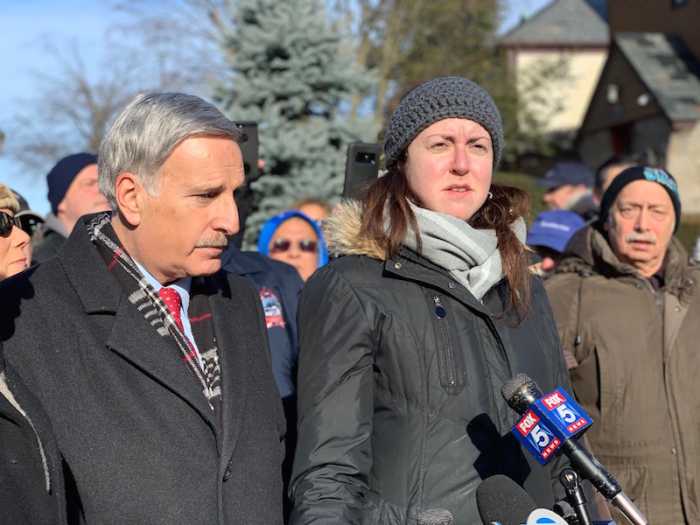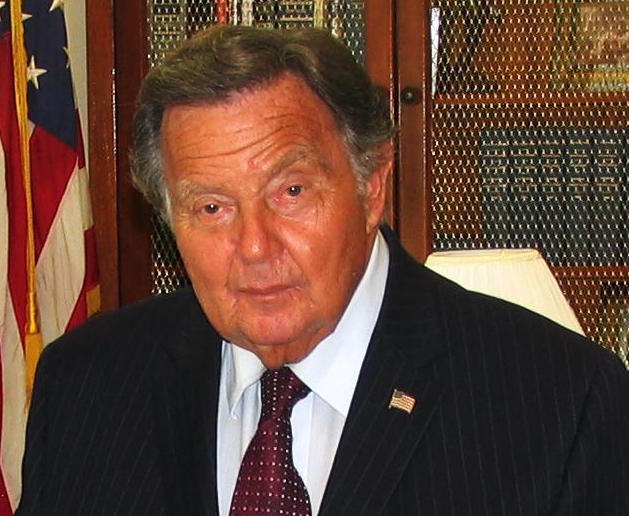Koo Bill Restricting Street Vending In DT Flushing Passes City Council
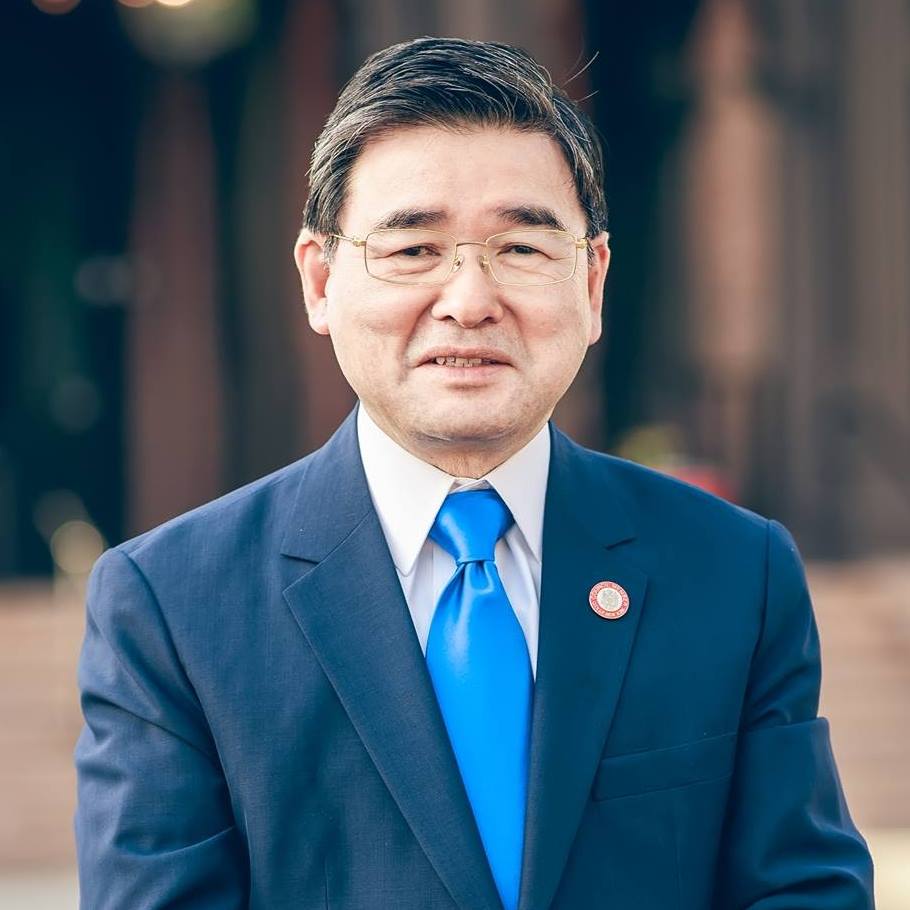
City Council Member Peter Koo (D-Downtown Flushing, Murray Hill, Queensboro Hill) yesterday saw the City Council pass his legislation to restrict street vending and sidewalk obstructions in downtown Flushing.
Intro 969-A prohibits sidewalk obstructions and street vending in certain areas of downtown Flushing. The amended version of the bill removed stoopline stands from the restrictions in order to allow the city more time to study its impact as such a restraint would be a first in the city.
Last year, the Flushing community celebrated the completion of up to nine feet of widened sidewalks on Main Street, Flushing. The new space was intended to provide critical relief to the hundreds of thousands of commuters who use the transportation hub’s more than 20 bus lines, subway, LIRR, and others who visit Flushing for its restaurants and shopping.
“Unfortunately, the widened sidewalks gave rise to a massive increase in street vending of all kinds. This legislation looks to return the sidewalks of one of NYC’s busiest transportation hubs back to the people who commute and live here,” Koo said. “The amended bill opens some blocks to vending, and while I am open to discussing the creation of a designated vending zone in the future, we first need to address the problem of congestion that exists today.”
Food vending will be prohibited from noon to midnight within the following boundary:
· Main Street from Northern Blvd. to Sanford Ave.
· 38th Ave. from Prince St. to 138th St.
· Prince St. from 38th Ave. to 39th Ave.
· 39th Ave. from College Point Blvd. to Union St.
· Lippman Plaza from 39th Ave. to Roosevelt Ave.
· Roosevelt Ave. from College Point Blvd. to Union St.
· 41st Ave. from College Point Blvd. to Union St.
· Kissena Blvd. from 41st Ave. to Barclay Ave.
· Sanford Ave. from Frame Place to Main St.
General vending will be prohibited within the following boundary:
North: Northern Boulevard
· East: Union Street
· South Sanford Avenue
· West: College Point Boulevard.
Licensed veterans and vending protected by under the Constitution’s freedom of speech provisions would be exempt from these restrictions. The legislation takes effect 180 days after it becomes law.
Weprin Hosts Elder Law & Medicare Forum
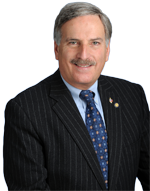
Assemblyman David I. Weprin (D–Fresh Meadows, Richmond Hill) today will co-host an Elder Law and Medicare forum as part of Queens Senior Appreciation Month. The other co-hosts are Services Now for Adult Persons, & the New York City Department for the Aging.
Participants will have the opportunity to learn from and ask questions to professionals about various Medicare and elder law issues including: drug plans, in network providers, billing, long-term care, estate planning, healthcare proxies, guardianships, power of attorney, and wills & trusts.
The forum is slated to start at 10 a.m., today, Sept. 27 at the SNAP Innovative Senior Center, 80-45 Winchester Boulevard, Building #4, in Queens Village.
Lancman’s ‘Street Parking Fairness’ Bill Formally Introduced
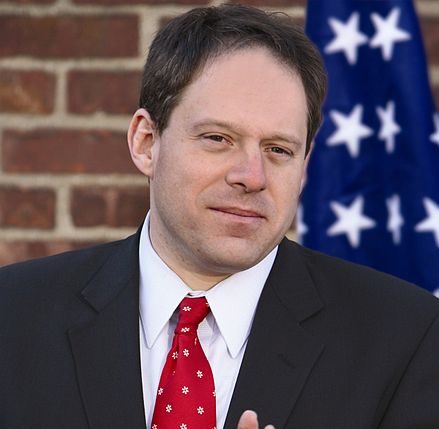
City Council Member Rory I. Lancman (D-Kew Gardens Hills, Pomonok, Electchester, Fresh Meadows, Hillcrest, Jamaica Estates, Briarwood, Parkway Village, Jamaica Hills, Jamaica) yesterday formally introduced legislation, Int. 1130, to prohibit auto body shops, mechanics, car rental businesses, and gas stations from parking or storing any inventory or shop vehicle on city streets.
Lancman drafted the legislation in response to complaints from residents and local businesses in his district that a row of auto body repair shops routinely parked cars they were servicing on city streets. As a result, there were limited spaces for others to park their vehicles.
“It is not fair for auto body shops to park vehicles on city streets, as part of their business, making it impossible for residents, consumers and business owners to park their cars,” said Lancman. “My legislation sends a clear message to auto body shops that these parking spaces belong to the public and there will be consequences for clogging our streets.”
The legislation aims to prevent commercial establishments from occupying city street parking as part of their business, specifically: dropping-off, picking-up, inspecting, repairing, advertising a vehicle for sale or lease, and more. Businesses that fail to comply would be assessed a fine of between $250 and $400 per vehicle, per day.
Hyndman Supports Legislation Protecting Barbershops Beauty Shops & Salons From Theft Of Services

Assembly Member Alicia Hyndman (D-Laurelton, Rosedale, St. Albans, Addisleigh Park, Hollis, Springfield Gardens, Jamaica) yesterday voiced her support for Governor Andrew M. Cuomo signing legislation (S.6343-A/A.10574) to protect barbershop, beauty shop and salon service providers against individuals who steal their services.
The bill closes a loophole in the law to include the failure to pay for services provided by a barbershop, salon, or beauty shop. The new law will make it a class A misdemeanor.
“Beauty salons and barber shops are no different than other small businesses whose livelihoods depend on the support of their communities,” Cuomo said. “This legislation closes a nonsensical loophole that gives these businesses equal protection under the law once and for all.”
Under current law, an individual who knowingly fails to pay for a service is not subject to criminal prosecution, leaving certain small business owners at risk of great financial loss. This bill will amend the law to protect those merchants who provide nonmaterial products by making it a criminal offense to obtain services from a barbershop, beauty shop or salon without paying for that service.
“Individuals who trained in the barbering and cosmetology licensed professions offer services to the public for which they should be compensated. This law now protects these service providers in a way they’ve never been protected before,” said Hyndman.




